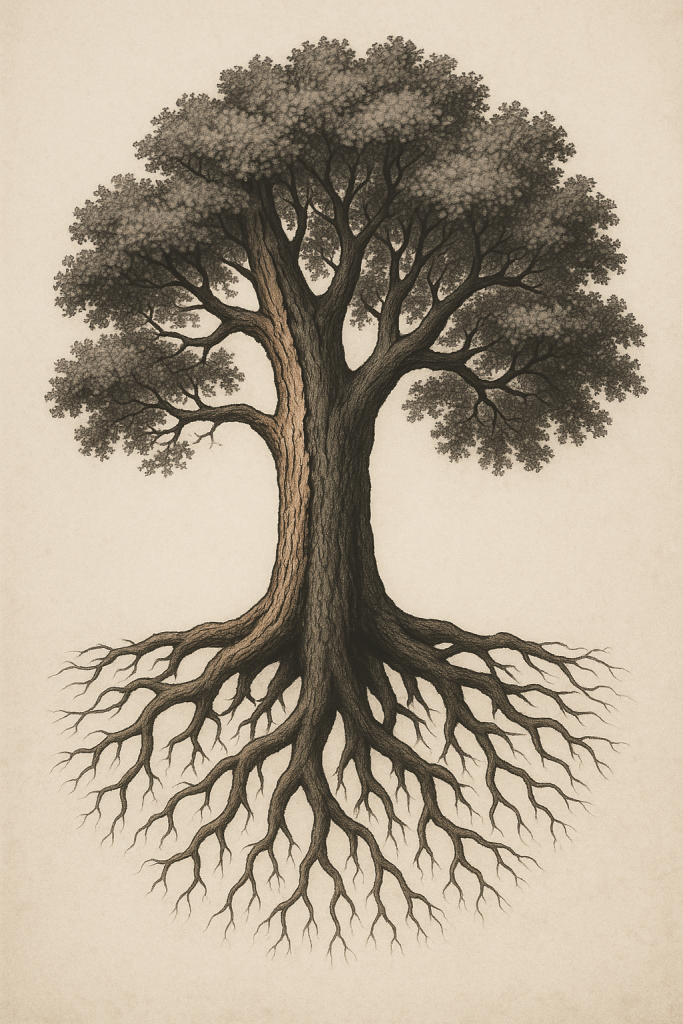Health in the Crosshairs: Medical Racism, Maternal Crisis, Exploitation, and the Biological Burden Placed on the Black World
A Phoenix Paradigm Long-Form News Analysis
By The Phoenix Paradigm, 2025
I. Introduction: A Pattern, Not an Accident
Across the African Diaspora, the health of Black people has been shaped not only by disease or genetics, but by systems engineered to extract, exploit, and experiment. From the plantations to the prisons, from birthing rooms to biochemical laboratories, Black bodies have been used to fuel medical advancement, military innovation, and corporate profit—often without consent and without benefit.
Today’s staggering health disparities—maternal mortality, chronic disease, metabolic disorders, shortened life expectancy, mistrust of healthcare—are not random. They are not unfortunate coincidences. They are the outcomes of policies, histories, and ideologies that treated Black life as expendable.
The Phoenix Paradigm names this plainly:
Health injustice is not a gap—it is a wound.
And every wound has an origin.
II. Functionalism: When Health Institutions Malfunction by Design
Functionalism argues that institutions exist to serve societal needs. Hospitals should heal; public health systems should protect; research should benefit all.
But for Black people, these institutions have historically malfunctioned. Or rather—they functioned perfectly for the society that built them.

A. Maternal Mortality as Measured Inequality
According to the CDC (2020):
| Group | Maternal Mortality Rate (per 100,000 live births) | |
|---|---|---|
| ------------------ | -------------------------------------------------- | |
| Overall U.S. | 23.8 | |
| Non-Hispanic Black | **55.3** | |
| Non-Hispanic White | 19.1 | |
| Hispanic | Increased significantly; specific figure not noted | |
| Mothers age 40+ | **107.9** |
- Black women die at 55.3 per 100,000 live births, nearly 3× the rate of white women.
- Age 40+ Black mothers die at 107.9 per 100,000—a catastrophic figure for a wealthy nation.
- The U.S. has the highest maternal mortality rate among industrialized nations.
This is not due to biology.
It is due to bias in clinical response times, inadequate pain assessment, and stereotype-based medical decisions.
Anushay Hossain calls it “the toxic intersection of racism and sexism.”
Even wealthy, insured Black mothers are not spared—evidence that class cannot protect from racialized negligence.
B. Pain, Dismissal, and the Ongoing Medical Stereotypes
Research continues to show that Black patients receive:
- less pain medication,
- slower diagnostic testing,
- fewer referrals,
- shorter medical consultations.
This is a direct descendant of 18th–20th century pseudoscience that claimed Black people feel less pain—a belief used to justify gynecological torture, surgical experimentation, and punitive labor under slavery.
Functionalism reveals the truth:
Institutions built on racist assumptions continue to reproduce racist outcomes.
III. Conflict Theory: Medicine as a Battlefield of Race, Power, and Profit
Conflict theory asks: Who benefits? Who suffers? Who profits from the suffering?
In the case of Black health, the answer spans centuries.
A. Tuskegee: The Template of Betrayal
For 40 years (1932–1972), the U.S. Public Health Service monitored Black men with syphilis without providing penicillin—even after it became the standard cure in the mid-1940s.
The revelation caused:
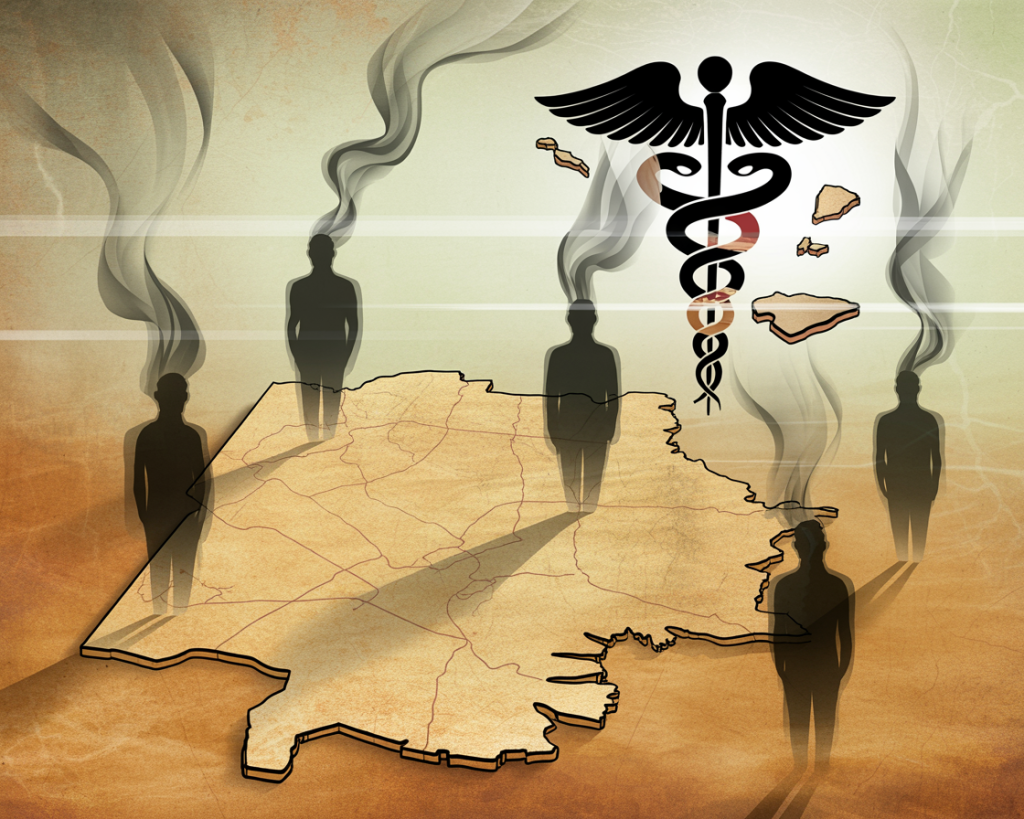
- 22% drop in Black male outpatient visits
- higher untreated chronic disease
- increased mortality
- reduction of life expectancy by up to 1.5 years (Alsan & Wanamaker, 2018)
Tuskegee was not a failure. It was a strategy.
And it cemented a generational mistrust that still shapes vaccine uptake, preventive care, and clinical trial participation today.
B. Henrietta Lacks: The Immortal Exploitation
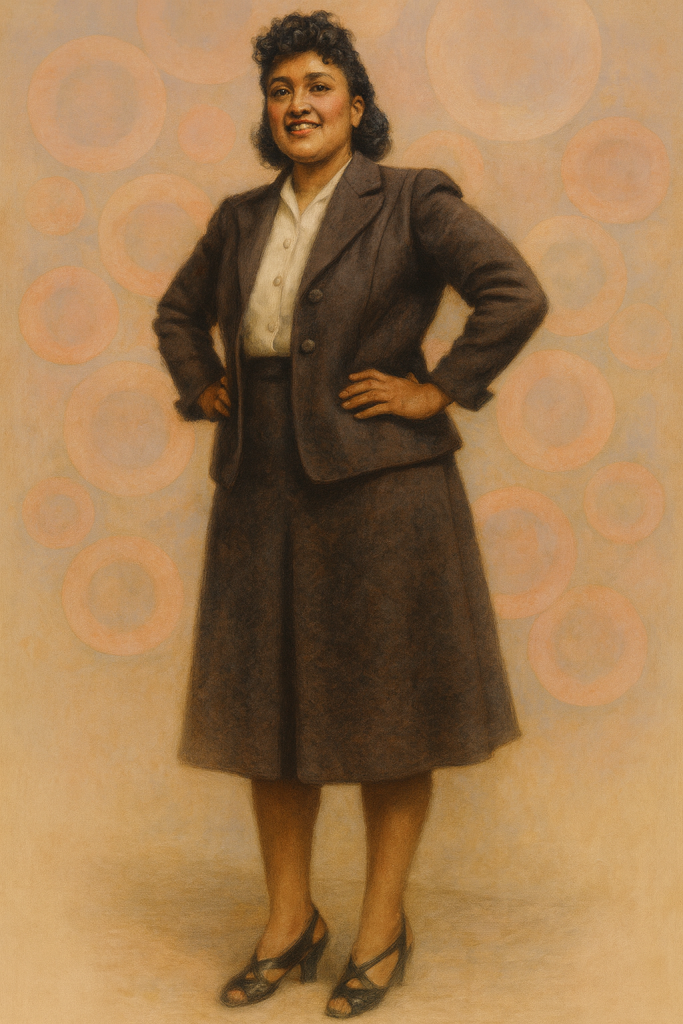
In 1951, Henrietta Lacks’ cervical cancer cells—HeLa cells—were taken without consent. Those cells became the backbone of global biomedical research:
- Polio vaccine development
- Cancer therapies
- Gene mapping
- Space science
- Virology
Again: Who benefited? Who suffered?
Certainly, her family did not benefit; no, they lived in poverty while institutions amassed billions.
C. Holmesburg Prison: “Acres of Skin”
Throughout the Cold War era, primarily Black inmates in Philadelphia were subjected to testing:
- LSD
- Chemical weapons
- Dioxin
- Radioactive compounds
- Cosmetic product experiments
- Painful “patch tests”
Many suffered permanent damage. None were compensated.
The medical industry gained data, patents, and prestige.
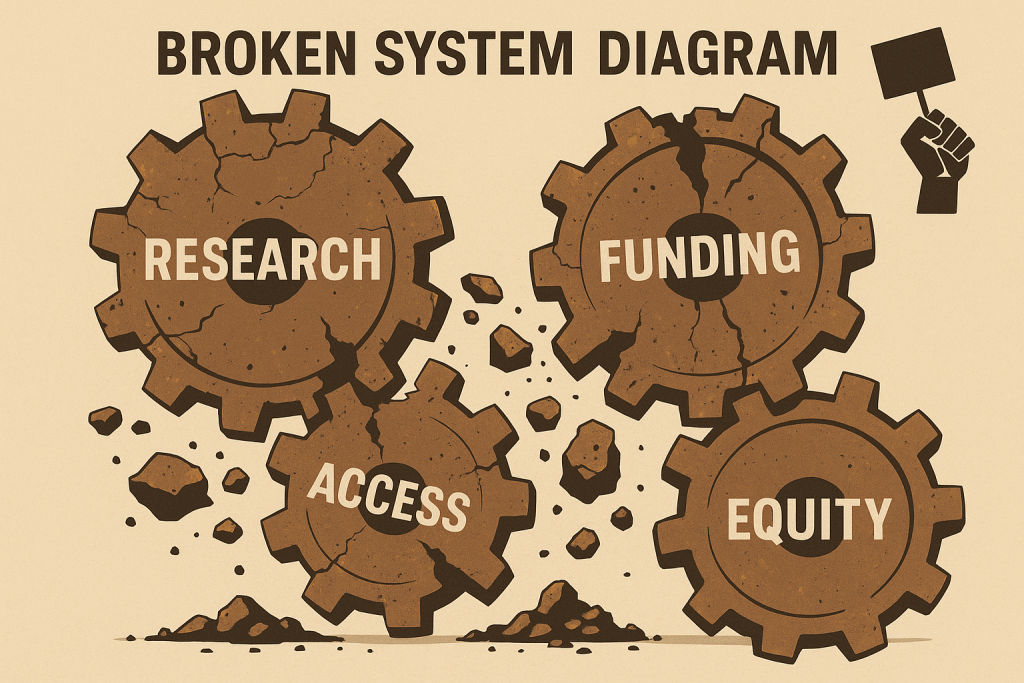
D. St. Louis: Chemical Sprays Over Black Neighborhoods
In the 1950s–60s, the U.S. Army dispersed zinc cadmium sulfide over the Pruitt-Igoe projects. Residents—mostly Black families—were not informed.
It was a “simulation” for biological warfare.
Even today, survivors report cancer clusters, lung issues, and generational trauma.
Conflict theory forces the revelation:
Black health was the battlefield. Black bodies were the terrain.
| Event | Years | Population Targeted | Key Harm | |
|---|---|---|---|---|
| ----------------------------- | ------------ | -------------------- | ------------------------------------------ | |
| Tuskegee Syphilis Study | 1932–1972 | Black men | Treatment withheld; increased mortality | |
| Henrietta Lacks / HeLa cells | 1951–present | Black woman | Cells taken without consent; global profit | |
| Holmesburg Prison Experiments | 1950s–1970s | Mostly Black inmates | Chemical and medical exploitation | |
| St. Louis Chemical Sprays | 1950s–1960s | Black residents | Military test exposure |
IV. Symbolic Interactionism: Meaning, Memory, and the Social Construction of Black Health
Symbolic interactionism focuses on the meanings people create through interaction.
For Black communities, medicine is not neutral—it carries memories, symbolism, warnings.
A. “Bad Blood”: The Lingering Code
In many southern Black communities, “bad blood” still symbolizes:
- distrust,
- secrecy,
- danger,
- medical betrayal.
The term survived because the trauma survived.
B. Birth as Trauma or Liberation
In many Black families, childbirth stories are:
- warnings,
- testimonies,
- survival narratives.
This aligns with Black midwifery traditions, where birthworkers act as healers, advocates, and cultural protectors.
Storytelling becomes both resistance and medicine.
C. Melanin, Ancestral Knowledge & Identity
Afrikan-centered thinkers like Llaila Afrika conceptualize melanin as:
- a regulator of biological systems,
- a spiritual transmitter,
- a cultural unifier.
Whether or not all claims align with Western biomedical frameworks, these beliefs shape:
- identity,
- health behaviors,
- collective meaning,
- resistance to harmful systems.
Symbolic interactionism reminds us:
Health is not just biological; it is cultural, interpretive, and deeply social.
V. Pan-Africanism: The Global Context of Black Health
Pan-African analysis reveals that Black health disparities are not confined to the U.S. They echo across the Diaspora and the continent:
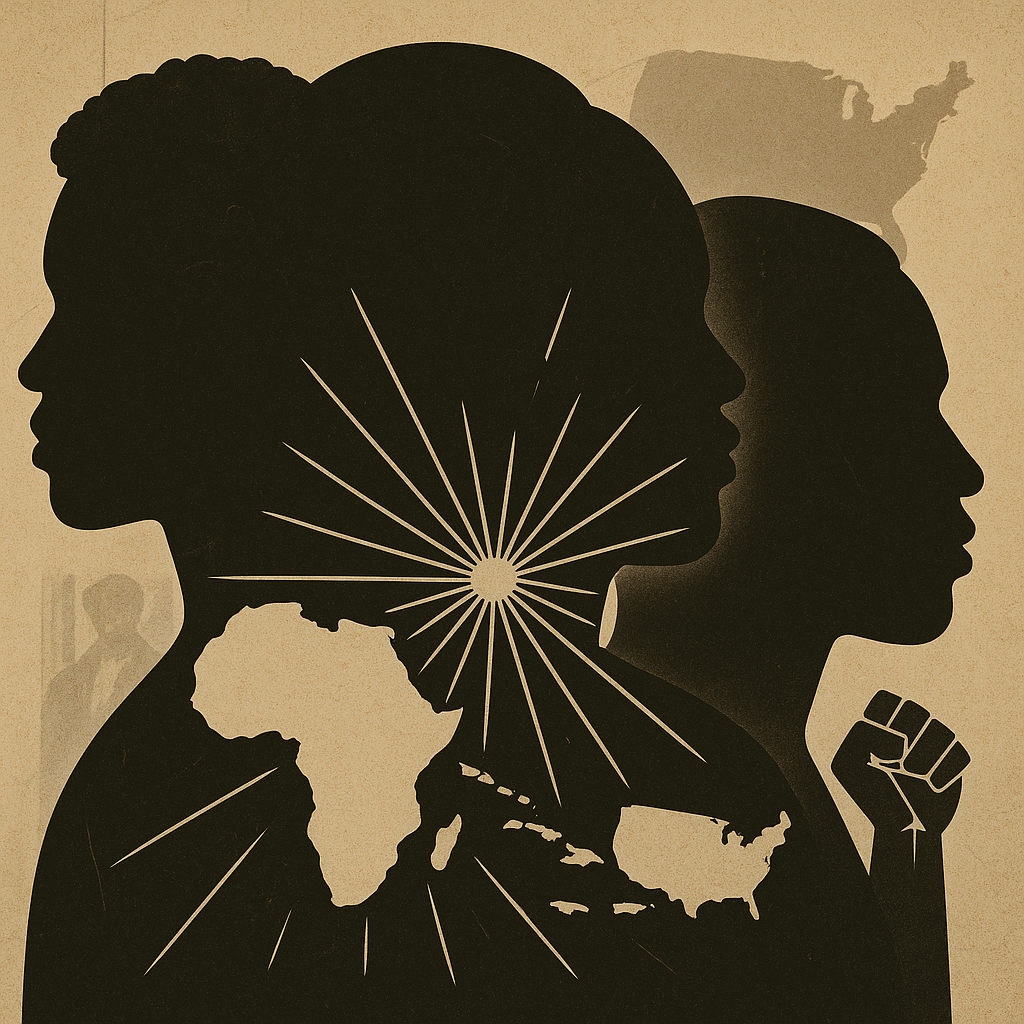
- Nigeria’s Trovan trials
- South African apartheid-era sterility experiments
- Caribbean unethical trials on impoverished populations
- African diaspora kidney disease and maternal disparity trends
The common factor:
Economic, racial, and colonial power shapes health outcomes.
Pan-Africanism reframes the issue:
Black health is not a minority issue—it is a global liberation issue.
| Theory | Focus | How It Explains Black Health Disparities | |
|---|---|---|---|
| ----------------------- | ------------------------ | -------------------------------------------------- | |
| Functionalism | Institutional roles | Institutions built on bias produce biased results | |
| Conflict Theory | Power & resource control | Black bodies exploited for profit, research, labor | |
| Symbolic Interactionism | Meaning & identity | Trauma shapes medical mistrust & resistance | |
| Pan-Africanism | Global Black liberation | Oppression patterns repeat across Diaspora |
VI. Biological Stress, MCH, and the Metabolic Toll of Oppression
The Melanin-Concentrating Hormone (MCH) research shows how chronic stress reshapes:
- appetite
- energy storage
- emotional regulation
- addiction pathways
- sleep patterns
MCH dysregulation is linked to:
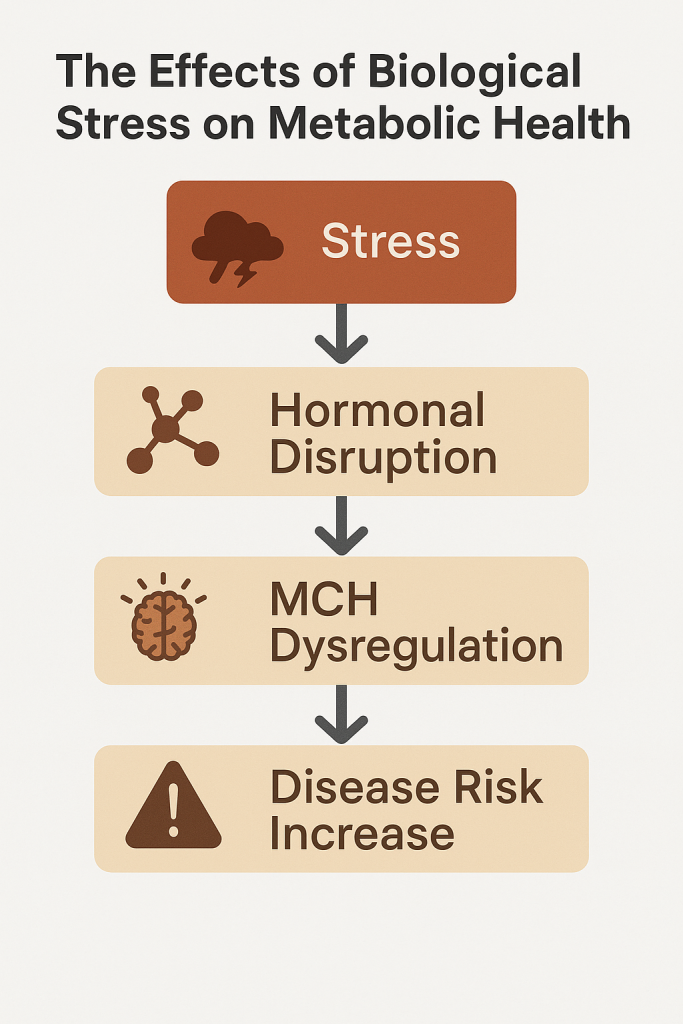
- obesity
- hypertension
- emotional eating
- metabolic diseases
For communities experiencing:
- poverty
- racism
- mass incarceration
- trauma
these biological effects intensify.
Science confirms what Black communities have felt for generations:
Oppression is not just psychological—it’s physiological.
VII. The Legacy: The Wound and the Work
The legacy of medical racism is not historical—it is ongoing.
It shows up in:
- maternal mortality
- higher diabetes rates
- untreated hypertension
- delayed cancer diagnoses
- shorter life expectancy
- medical mistrust
- underrepresentation in clinical trials
- overrepresentation in medical experiments
Yet Black communities continue to resist:
- reviving traditional midwifery
- advocating for doulas
- practicing ancestral healing
- teaching medical literacy
- building mutual aid networks
- creating Black-owned health institutions
The Phoenix Paradigm frames this struggle as part of the larger fight for:
- autonomy
- dignity
- sovereignty
- collective memory
- global liberation
The future of Black health depends on the world we build—together.
